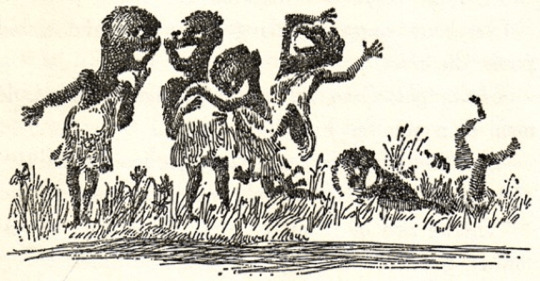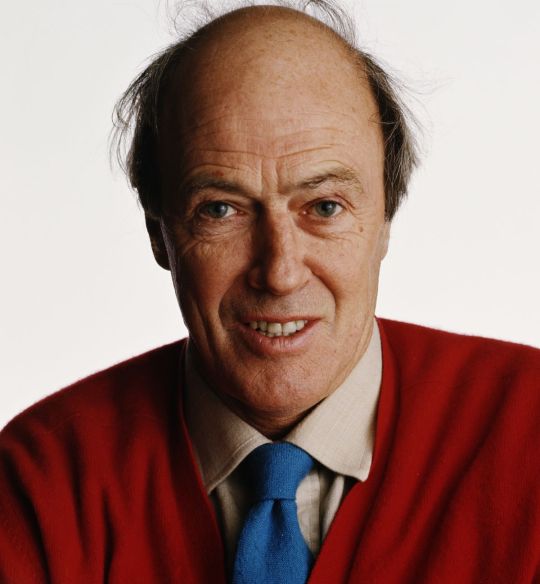Text
Why "The Giving Tree" Made Me Cry

View On WordPress
0 notes
Text
Who Knew Charlie and the Chocolate Factory was Controversial?
Welcome to my very first blog post. Today I want to talk about the children's story that we all know and love, Charlie and the Chocolate Factory. Whether it be the original book, or one of the two movie adaptations, we’ve all at least heard of this classic story in some way. Today I want to focus on the original children’s book written by Roald Dahl and the controversies it has racked up throughout the years.
Let's start with a little background on the author and a quick summary of the book for those of us who may need a refresher. Roald Dahl, who died in 1990 at the age of 74, was a British author who is still considered one of the most popular children’s authors. He is known for popular works such as James and the Giant Peach, Matilda, and The Witches, and his books have sold more than 300 million copies globally. He was known to voice some offensive opinions outside of his work and was also notorious for his anti-sematic remarks. Be that as it may, his works were still very successful. Charlie and the Chocolate Factory was first published in 1964 and is perhaps one of Dahl’s most popular works, having sold at least 20 million copies world-wide in 55 different languages. It has two different movie adaptations, and has even been adapted for stage performances. So no matter which form it’s viewed in, this classic continues to lure children in with its rags-to-riches tale.
The main character of the book is an 11 year old boy named Charlie Bucket who lives in poverty with his parents and all 4 grandparents. Everyday on his way to school Charlie passes the famous chocolate factory owned by Willy Wonka. No one is ever seen coming in or out of the factory and Wonka is very secretive. Charlie’s grandfather tells him that this is due to competitors stealing Wonkas candy-making secrets, causing the factory to shut down temporarily in the past. One day Wonka announces that he will be hiding 5 Golden Tickets inside chocolate bars and that the children who find them will be rewarded with a tour of the factory and a lifetime supply of his products.
Charlie happens to find some money sticking out of the snow while walking one day, uses it to buy two chocolate bars, and discovers the final Golden Ticket in one of them. When Charlie and the four other children enter the factory they are amazed by both its beauty, and the creatures who work there. These creatures are the cacao-bean loving Oompa Loompa’s, who Wonka explains are from a land called “Loompaland”. They are described as being tiny men with white skin and golden hair who love to sing, and are the only people Wonka employs to work in his factory. As the tour continues, the other four children suffer bizarre, and sometimes painful, consequences for their selfish and bad behavior. For example the bubble gum obsessed Violet Beauregarde steals a piece of experimental gum that turns her into a blueberry. The mischievous Oompa Loompas break into songs highlighting the children's bad behavior each time this happens. By the end of the tour Charlie is the only one of the 5 children left standing, so to reward him for his good behavior Wonka gives him the chocolate factory and that's how the story ends.
Now if you’re anything like me you may be wondering, where did people find controversy in that? Well to start, Dahl had originally described the Oompa Loompas as African pygmies that Wonka found in the deepest, darkest parts of the African Jungle. However, Dahl himself changed their description to white-skinned and golden haired fantasy creatures in 1973 after many complaints and protests by the NAACP. The NAACP even went as far as to demand that the 1971 movie adaptation be given a different name than the book so people wouldn’t make the connection between the two and read the book. And now today the books publishers at Puffin Books are going to be making even more changes to the story in their New Edition reprints of the book. The Oompa Loompas will no longer be described as “tiny men no higher than my knee”, but will instead simply be called “small people” to avoid offending short people and to erase the exclusion of women. Also the description of Augustus Gloop, one of the 5 children on the tour, will be changed from “enormously fat” to just “enormous” to avoid offending heavy-weight children. I really don’t see the point in either of these changes since you can clearly see their original descriptions in both of the movies, but to each their own I guess.
Charlie and the Chocolate Factory isn’t the only one of Dahl’s works undergoing these changes. They are all being edited in some way and this is upsetting many fans of the original works as well as other authors and anti-censorship advocates. British-American novelist Salman Rushdie had this to say, “Roald Dahl was no angel, but this is absurd censorship. Puffin Books and the Dahl Estate should be ashamed.” My main question is where do they draw the line? At what point are they beginning to read these books with the pretense “how could this be seen as offensive”? Were these changes really necessary or are the Sensitivity Readers in charge of pointing these things out just that; too sensitive. I believe we’re beginning to step into the danger zone of controlling the creativity and imaginations of writers by changing their visions for their stories. Most children wouldn’t read these things and see them as offensive, so all they’re really going to accomplish is softening children and making them believe everything to be offensive. But part of life is having to learn to deal with things that might upset you, or make you uncomfortable. And children should have to learn that not everything is a personal attack.
If you’ve made it all the way to the end thank you! I would love to hear your thoughts and opinions on this topic. Just remember to stay respectful towards each other in the comments section. You can disagree with each other, but still be kind and respectful, that’s how good debates work. Let me know if you’d like to hear about any of Dahl’s other works and their individual controversies and changes. And also feel free to make requests on what you think I should write about next.






#nostalgia#books and reading#controversy#childrens books#author#fantasy#discussion#debate#criticism#opinions#censorship#thoughts#1960s#sensitivity readers#publishers#charlie and the chocolate factory#willy wonka#oompa loompa
2 notes
·
View notes